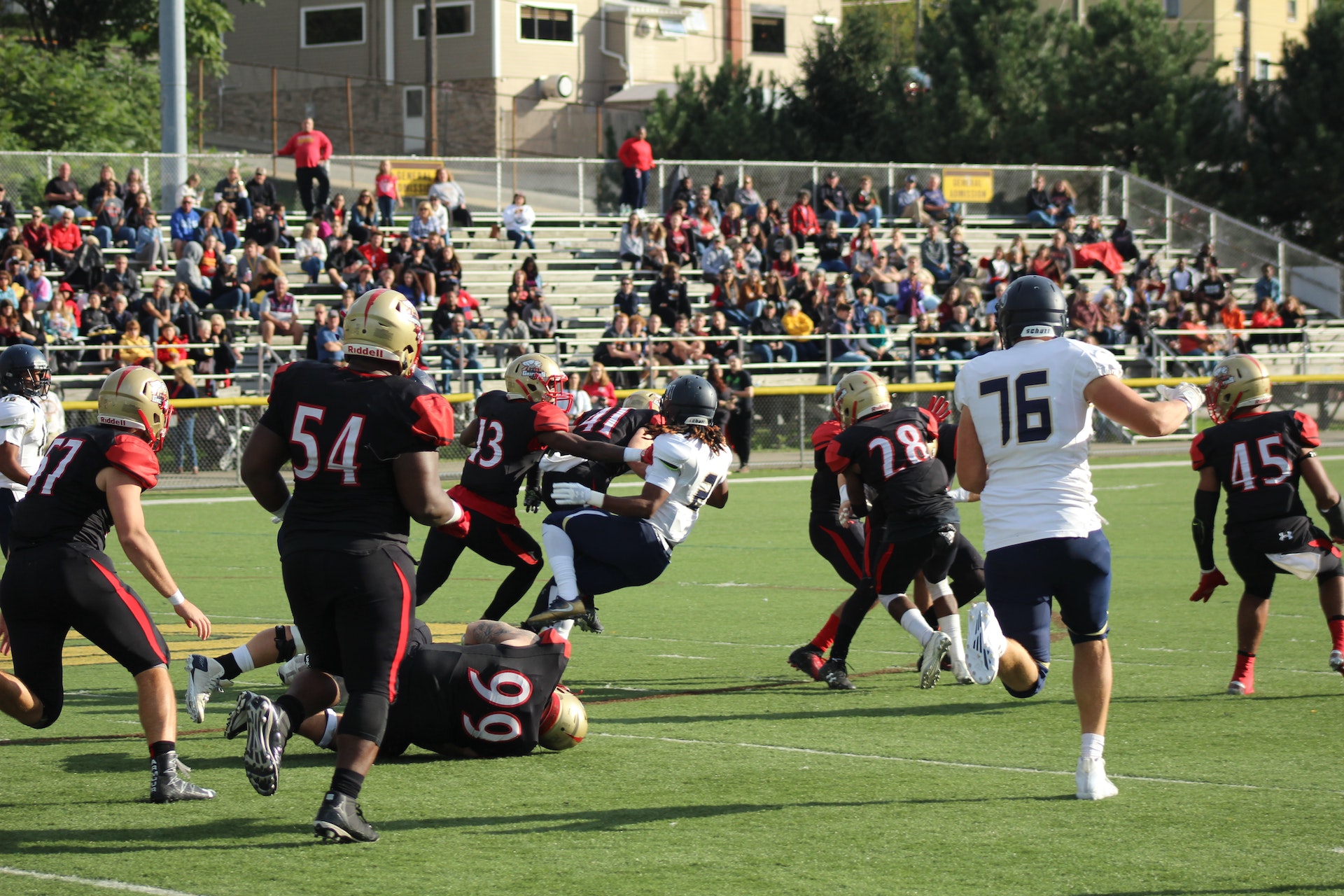Sports Betting Laws And Regulations By State - The Legality Of Sports Betting
Understanding the sports betting laws and regulations by state is crucial for anyone looking to engage in legal sports betting. Sports betting has become increasingly popular in recent years, with more and more states legalizing the practice.
Author:K. N.Mar 20, 202326.7K Shares623.1K Views

Understanding the sports betting laws and regulations by stateis crucial for anyone looking to engage in legal sports betting. Sports betting has become increasingly popular in recent years, with more and more states legalizing the practice.
However, each state has its own set of lawsand regulations when it comes to sports betting, making it important for individuals to be aware of the rules in their specific state.
In this article, we will provide a comprehensive guide to the laws and regulations surrounding sports betting in various states across the country.
The History Of Sports Betting In The United States
Early History
In the early days of the United States, horse racing was a popular sport for betting. People would bet on which horses would win, and the betting was typically done informally among friends or acquaintances.
In the 19th century, baseball also became a popular sport for betting. However, during this time, sports betting was largely unregulated, and there was little legal protection for those who engaged in it.
Prohibition And The Mob
In the 1920s and 1930s, sports betting became associated with organized crime. With the advent of prohibition, illegal betting operations became more common, and the mob saw an opportunity to profit from the demand for sports betting.
The mob would often fix games and manipulate outcomes to ensure their bets paid off. This era marked a dark period in the history of sports betting and left a lasting impression on the public's perception of the activity.
The Rise Of Nevada
In 1949, the state of Nevada legalized sports betting, making it the only state where sports betting was legal.
The legalization of sports betting in Nevada was a significant development for the industry, as it allowed for more regulated betting and provided a safer alternative to the illegal operations run by organized crime.
The legalization of sports betting in Nevada was also driven by the state's desire to attract more tourists and generate revenue.
Federal Ban On Sports Betting
In 1992, the federal government passed the Professional and Amateur Sports Protection Act (PASPA), which prohibited states from legalizing sports betting. PASPA exempted Nevada, as well as a few other states that already had sports betting laws on the books.
The passage of PASPA effectively limited the growth of the sports betting industry in the United States, leaving many sports bettors to turn to illegal operations or offshore betting sites.
Supreme Court Ruling And Legalization
In 2018, the Supreme Court struck down PASPA, ruling that it was unconstitutional. This decision paved the way for individual states to legalize and regulate sports betting, and many states quickly moved to take advantage of the ruling.
As of 2023, more than 30 states have legalized sports betting, with many more considering legislation to do so.

Sports Betting In the United States: Legal Guide to 50 US States ⚖️
Current Sports Betting Laws And Regulations By State
States With Legalized Sports Betting
As of 2023, more than 30 states have legalized sports betting, with many more considering legislation to do so.
Each state has its own set of laws and regulations governing sports betting, and it is important for anyone interested in sports betting to understand the rules in their state. Some of the states with legalized sports betting include:
- New Jersey:New Jersey was the state that brought the Supreme Court case that led to the overturning of PASPA. As a result, New Jersey has been at the forefront of the sports betting industry and has one of the most robust sports betting markets in the country. The state allows both online and in-person sports betting and has a wide range of sportsbooks to choose from.
- Pennsylvania:Pennsylvania legalized sports betting in 2017, and the state has quickly become a major player in the industry. Pennsylvania allows both online and in-person sports betting and has a variety of sportsbooks to choose from.
- Colorado:Colorado legalized sports betting in 2020, and the state has quickly become a popular destination for sports bettors. Colorado allows both online and in-person sports betting and has a range of sportsbooks to choose from.
States With Pending Sports Betting Legislation
Several states have pending legislation for sports betting, meaning that they may legalize sports betting in the near future. Some of the states with pending legislation include:
- Texas: Texas is one of the largest states in the country, and its potential legalization of sports betting would be a significant development for the industry. The state currently has several bills pending in the legislature that would legalize sports betting.
- Florida:Florida is home to several major sports teams and has a large population, making it an attractive market for sports betting. The state has several bills pending that would legalize sports betting, but there are still some hurdles to overcome.
States With No Legalized Sports Betting
Several states have not yet legalized sports betting, meaning that it is illegal to engage in sports betting in those states. Some of the states without legalized sports betting include:
- Utah:Utah has some of the strictest gambling laws in the country, and sports betting is currently illegal in the state.
- Hawaii:Hawaii is another state that has strict gambling laws and does not currently allow sports betting.
Federal Regulations
While the Supreme Court decision in 2018 paved the way for states to legalize sports betting, there are still some federal regulations that impact the industry.
The Wire Act, for example, is a federal law that prohibits the use of wire communications to transmit betting information across state lines. This law has implications for online sports betting, as it limits the ability of sportsbooks to operate across state lines.
However, there is ongoing debate about how the Wire Act should be interpreted, and there may be changes to federal regulations in the future.
States Where Sports Betting Is Legal
Currently, sports betting is legal in the following states:
- Nevada
- Delaware
- New Jersey
- Mississippi
- West Virginia
- New Mexico
- Pennsylvania
- Rhode Island
- Arkansas
- New York
- Iowa
- Oregon
- Indiana
- New Hampshire
- Illinois
- Michigan
- Montana
- Colorado
- Tennessee
- North Carolina
- Virginia
- Washington D.C.
- Maryland
- South Dakota
- Louisiana
- Wyoming
- Arizona
- Connecticut
- Massachusetts
- Ohio
- New Jersey
States With Pending Sports Betting Legislation
While sports betting is already legal in many states, there are still several states with pending legislation. These states include:
- Alaska
- Florida
- Georgia
- Hawaii
- Kansas
- Kentucky
- Minnesota
- Missouri
- Nebraska
- North Dakota
- Oklahoma
- South Carolina
- Texas
- Utah
- Vermont
- Wisconsin
People Also Ask
What Are The Current Sports Betting Laws And Regulations In [state]?
Each state has its own set of laws and regulations regarding sports betting. You can check the current laws and regulations in your state by researching online or consulting with a legal expert.
How Has The Supreme Court Ruling On Sports Betting Affected State Regulations?
The Supreme Court ruling in 2018 lifted the federal ban on sports betting, which allowed individual states to legalize and regulate sports betting. This has led to a patchwork of regulations across the country, with some states moving quickly to legalize and regulate sports betting while others have been more cautious.
What Types Of Sports Betting Are Legal In [state]?
Each state has its own regulations on what types of sports betting are legal. Some states only allow in-person betting at casinos or racetracks, while others also permit online or mobile betting. Some states also have restrictions on the types of sports or events that can be bet on.
Are There Any Restrictions On Who Can Place Sports Bets In [state]?
Some states have restrictions on who can place sports bets, such as age restrictions or residency requirements. It's important to check your state's regulations before placing any sports bets to ensure that you are in compliance with the law.
What Are The Penalties For Violating Sports Betting Laws In [state]?
Each state has its own penalties for violating sports betting laws, which can range from fines to imprisonment. It's important to understand the consequences of violating the law before placing any sports bets to avoid any legal issues.
Final Words
Sports betting laws and regulations vary widely from state to state. Some states have embraced legalized sports betting, while others have strict laws prohibiting it.
It is essential for sports bettors to be aware of the laws and regulations in their state and to comply with them. As sports betting continues to grow in popularity, it is likely that more states will legalize and regulate it.
However, it is important to always gamble responsibly and within the confines of the law. By staying informed and following the regulations in place, sports bettors can enjoy the excitement of sports betting while protecting themselves and others from legal consequences.

K. N.
Author
Latest Articles
Popular Articles